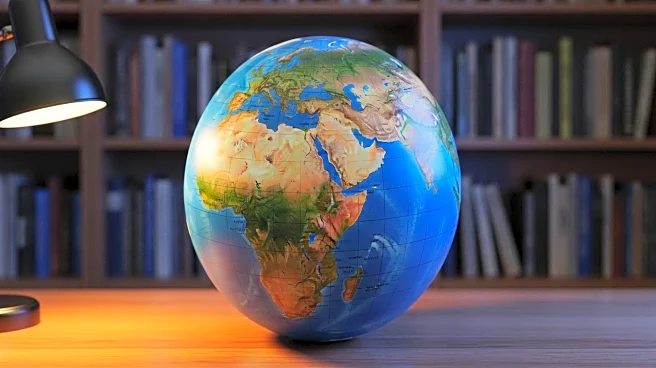What's Happening?
Aaron David Miller, a senior fellow at the Carnegie Endowment for International Peace, has expressed skepticism about the prospects for peace in the Middle East, particularly between Israel and Gaza. During an interview with ABC News Live, Miller highlighted the complexities and ongoing tensions that make a peace deal challenging. He noted that despite various efforts and discussions, the region remains far from achieving a lasting peace agreement. Miller's insights come amid continued geopolitical struggles and humanitarian concerns in the area, underscoring the difficulty of resolving longstanding issues.
Why It's Important?
The Middle East has been a focal point of international diplomacy for decades, with the Israeli-Palestinian conflict being one of the most persistent and complex issues. The lack of progress towards peace affects regional stability and has broader implications for global politics. A peace deal could potentially lead to improved security, economic development, and humanitarian conditions in the region. However, the ongoing challenges highlighted by experts like Miller suggest that achieving such outcomes remains elusive. The situation impacts U.S. foreign policy, as the country has historically played a significant role in mediating peace efforts.
What's Next?
While the path to peace remains uncertain, diplomatic efforts are likely to continue. Stakeholders, including international organizations and governments, may seek new strategies to address the underlying issues. The U.S. and other nations could increase their involvement in negotiations, aiming to facilitate dialogue and compromise. However, the entrenched positions and historical grievances present significant obstacles. Observers will be watching for any shifts in policy or leadership that might influence the peace process.
Beyond the Headlines
The ongoing conflict in the Middle East raises ethical and humanitarian concerns, particularly regarding the impact on civilian populations. The lack of peace contributes to human rights violations and economic hardships, affecting millions of people. Additionally, the geopolitical dynamics in the region influence global energy markets and international relations, with potential ripple effects on economic stability worldwide.











